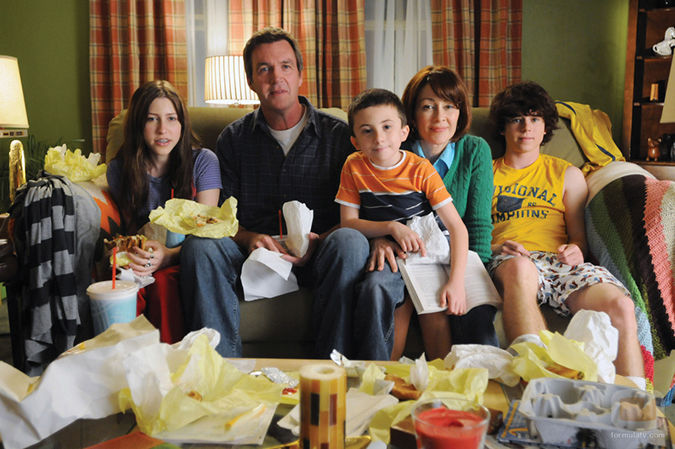Fathers have not always fared so well in either human history or popular culture.
In the television universe we have seen the de-evolution of paternal prototypes spiral downward from the solid, pipe-smoking, tie-wearing (even when they were sitting in their own living room reading the paper), gainfully employed (even if we never did figure out what exactly some of these TV dads did for a living) pater familias, to the bombastic, not so bright comedic foils we now see on TV who are just sitting there waiting to be corrected by incorrigible 11-year-old sons or daughters who act and talk like no 11-year-old son or daughter I have ever met.
This is not a paean to the “good old days” which, if we are really honest with ourselves, were never as “good” as our collective amnesia assembles. If you go back just a few short TV decades, you’ll find plenty of dads who were equal amounts bumbling no-nothings and simpletons.
Today the television lunar-scape is filled with so many variations on this theme that one needs a scorecard to keep track of them. There are blended families, unblended families, single parent families and seemingly endless variations of the very definition of families. But if there is a father, there is usually a common denominator of that same character not all that smart or worthy of respect.
As the multitude of variety and “cutting edge” family constructs one finds in popular entertainment betrays, television appears to worship at the altar of the avant-garde, and does so with such strident earnestness that it renders the extraordinary mundane. It’s a given that the vast majority of television characters will have little or no formal religious expression, never, if ever darken the doors of a house of worship and ascribe to just about every nuanced family combo-plate that the 20-somethings sitting around the writers’ tables can come up with.
Enter the Heck family of the ABC sitcom “The Middle.” More precisely, enter Mike Heck as played by Neil Flynn. To some extent the show represents a revolutionary and “new” take on the modern American family as seen through the rather jaundiced LED lights of the average television monitor. The head of the Heck family does render a comic type, no doubt; but it’s a dad who is not buffoonish and in dire need of correction by a preteen son or daughter. He’s just a dad, a guy who is not all that comfortable with the warm and fuzzy part of his parental obligation but one who does seem to love his kids in a sincere if imperfect way.
It is a show that actually comes a lot closer to the Catechism of the Catholic Church than I think it knows. Parents have the first responsibility for the education of their children in the faith, prayer and all the virtues. They have the duty to provide as far as possible for the physical and spiritual needs of their children. (CCC, n. 252). Granted, the show wouldn’t be very funny if the parents were experts at educating their children in “the faith, prayer and all the virtues,” but the very fact that the premise of this show is loving but woefully defective parents trying to raise woefully defective children is kind of refreshing in a form of entertainment that is so often void of such characterizations.
The imperfection in “The Middle,” a show about a middle-class family living in Middle America and whose prospects are fair to middling, is almost epic. The Heck family house is an Architectural Digest nightmare, its interior is a mish-mashed collection of gaudy color schemes and disconnected furniture, and it all exists in a perennial state of clutter. The Heck household doesn’t look anything like 99 percent of the fake living rooms in all the other shows on television, but I would wager it looks eerily close to a lot of real living rooms that have a television in them watching “The Middle.”
Probably the most “revolutionary” aspect of this show is that the characters have a spiritual side that is manifested in religious expression. That’s a fancy way of saying the Heck family goes to church. One isn’t hit over the head with this character attribute and the church is a rather toned-down, vanilla form of Protestantism, but it is church nonetheless, and it even envelopes the Heck children. Like everything else about this family, their church attendance and behavior inside church is not always as it should be, but then again, if they were perfect churchgoers, they wouldn’t be funny and they wouldn’t be real.
As a recovering television writer I marvel at the show runners of “The Middle.” They pitched and sold a series that contains a family constructed with a dad, a mom with children and have shepherded it for many successful years including renewal for the upcoming fall season. Sure, it’s a family in need of grace like every other real family I have ever seen (including my own), but it is also headed by a somewhat off-kilter dad who is constant in his love for his somewhat off-kilter wife and kids.
What a high concept television show. And Happy Father’s Day.
Robert Brennan has been a professional writer for more than 30 years, including many years in the television industry. He has been a contributing writer for the National Catholic Register for many years and has also been published in Our Sunday Visitor and This Rock.

